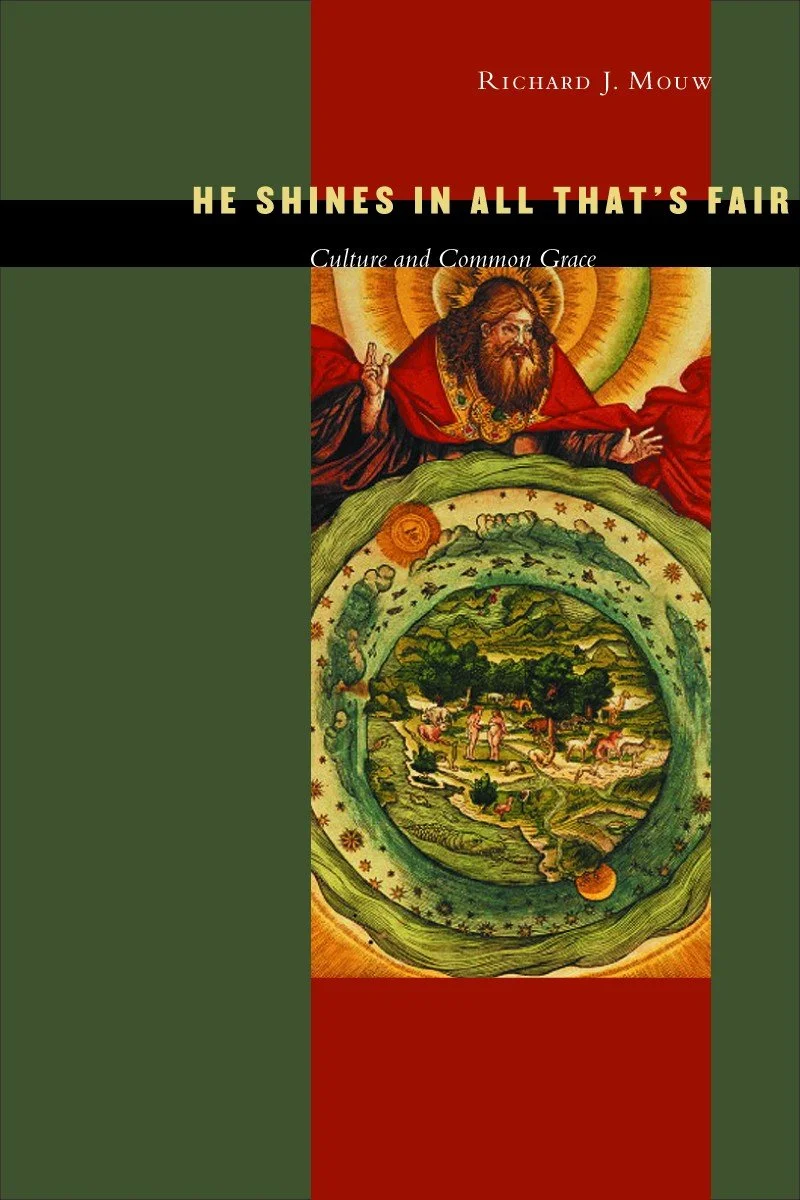He Shines in All That’s Fair
I read it way back in November and it made the cut as one of my favorite books of the year, but until now I haven’t blogged about Richard Mouw’s He Shines in All That’s Fair: Culture and Common Grace (Eerdmans). Honestly, I just had to let it sit for a while, to settle.
It came highly recommended by someone in the know as a good introduction to common grace theology, a theme I decided I’d do well to actually study a bit, rather than just carrying around in my head various muddled thoughts about what I took it to mean. It’s a small, 101-page book, and as an introduction to such an enormous topic, it’s a delight to read, and it really packs a punch.
Mouw sets the stage by describing two distinct Christian camps: those who tend to emphasize what Christians and non-Christians have in common, and those who tend to emphasize all the differences. It’s right to acknowledge the legitimacy of both commonness and difference, he says. This book has more to do with the latter, but with an important condition: “Our search for the grounds of commonness must be motivated by a faith that cuts against the grain of much of contemporary life and thought.”
To suggest, as common grace theologians do, that God is up to more in the world than just saving souls, may be controversial in some circles. But I agree with Mouw that according to the Bible, God’s redemptive purposes are cosmic in scope. Still, Mouw acknowledges that there’s mystery involved, especially when it comes down to the specifics. “Properly understood,” he writes, “common grace theology is an attempt to preserve an area of mystery regarding God’s dealings with humankind.”
While most of us would find it reasonable to affirm that God delights in the beauty of his creation – “glowing sunsets and ocean waves breaking on a rocky coastline and a cherry tree in bloom and the speed of a leopard on the chase” – could it also be true that God “takes a positive interest in how unbelievers use God-given talents to produce works of beauty and goodness” or that he takes an active role in restraining sin and evil, even among those who have not accepted him as Lord? Mouw writes:
The underlying view I am endorsing here posits multiple divine purposes in the world. To state it plainly: I am insisting that as God unfolds his plan for his creation, he is interested in more than one thing. Alongside of God’s clear concern about the eternal destiny of individuals are his designs for the larger creation…
It is important for us in these difficult days to cultivate… modesty and humility in our efforts at cultural faithfulness. But we cannot give up on the important task – which the theologians of common grace have correctly urged upon us – of actively working to discern God’s complex designs in the midst of our deeply wounded world.
Learning discernment, as we all know, is messy business, but it’s essential not just in common grace theology but in all of life. Thankfully, we’re not left to figure it out on our own: we’re given the Holy Spirit and we’re given a local church, “that community where the Spirit is openly at work, regenerating sinners and sanctifying their inner selves.”
There’s so much more I could say about this little book and this very big theme, but I’ll leave it at that for now. I’ll revisit common grace theology again before too long, and Richard Mouw too, for that matter.
How do you understand the doctrine of common grace? Do you agree with Mouw’s assertion that God has “multiple divine purposes in the world”? If so, how does that impact how we live?
